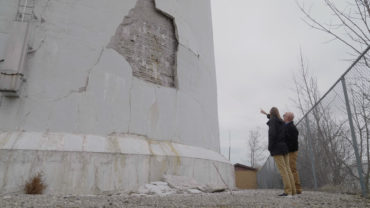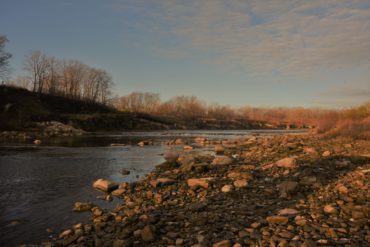-
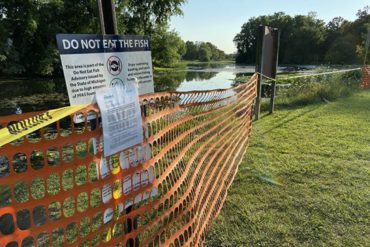 AdvocacyBudgetCharles Stewart Mott Foundation PartnershipClimate ChangeCollaborationEquity and Environmental JusticeIndustry, Energy, Economic DevelopmentInfrastructureLatest NewsMichiganNewsPolicyPolitics, Policy, Environmental JusticeProtectScience, Technology, ResearchU.S. and Canadian Federal GovernmentsWater Quality and Restoration Efforts
AdvocacyBudgetCharles Stewart Mott Foundation PartnershipClimate ChangeCollaborationEquity and Environmental JusticeIndustry, Energy, Economic DevelopmentInfrastructureLatest NewsMichiganNewsPolicyPolitics, Policy, Environmental JusticeProtectScience, Technology, ResearchU.S. and Canadian Federal GovernmentsWater Quality and Restoration EffortsMichigan Democrats aiming to erase business friendly environmental laws
-From polluter pay laws to plastic bag bans, Democrats and environmental advocates hope to reverse Republican-passed laws.
10 -
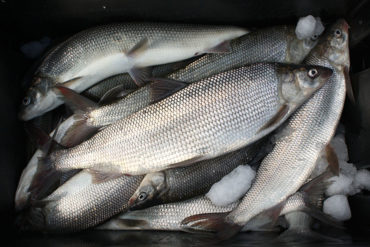 Charles Stewart Mott Foundation PartnershipClimate ChangeCollaborationCommercial FishingFish, Birds and AnimalsHistory and CultureIndigenous CommunitiesIndustry, Energy, Economic DevelopmentLake HuronLake MichiganLake SuperiorLatest NewsMichiganNewsPolitics, Policy, Environmental JusticeRecreation and TourismRecreational Hunting and FishingScience, Technology, ResearchTribal Governments and First Nations
Charles Stewart Mott Foundation PartnershipClimate ChangeCollaborationCommercial FishingFish, Birds and AnimalsHistory and CultureIndigenous CommunitiesIndustry, Energy, Economic DevelopmentLake HuronLake MichiganLake SuperiorLatest NewsMichiganNewsPolitics, Policy, Environmental JusticeRecreation and TourismRecreational Hunting and FishingScience, Technology, ResearchTribal Governments and First NationsMichigan tribes, state reach tentative deal on Great Lakes fishing access
-Under the deal, tribal fishers could use gillnets in more places to cope with declining whitefish populations.
-
Beaches, Boating, Paddle Sports and SailingCharles Stewart Mott Foundation PartnershipFeature HomepageIndustry, Energy, Economic DevelopmentLake ErieLatest NewsNewsProtectRecreation and TourismThe CatchWater Quality and Restoration Efforts
Robots tackle shoreline trash
-The bots will collect plastic pollution as part of a larger binational effort called the Great Lakes Plastic Cleanup initiative.
-
Charles Stewart Mott Foundation PartnershipEnbridge Line 5 and Other PipelinesFeature HomepageIndustry, Energy, Economic DevelopmentLatest NewsMinnesotaNewsPolitics, Policy, Environmental JusticeThe CatchTribal Governments and First NationsWater Quality and Restoration Efforts
The Latest on Enbridge Line 3
-Enbridge is facing government action and criminal charges stemming from violations during the construction of the Line 3 pipeline in Northern Minnesota.
-
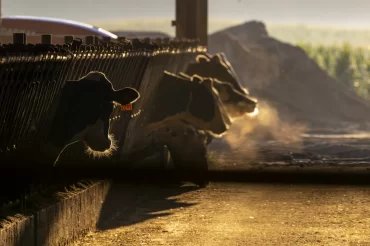 AgricultureCharles Stewart Mott Foundation PartnershipCollaborationDrinking WaterFoodIndustry, Energy, Economic DevelopmentLake ErieLatest NewsMichiganMinnesotaNewsOhioRecreation and TourismWater Quality and Restoration EffortsWisconsin
AgricultureCharles Stewart Mott Foundation PartnershipCollaborationDrinking WaterFoodIndustry, Energy, Economic DevelopmentLake ErieLatest NewsMichiganMinnesotaNewsOhioRecreation and TourismWater Quality and Restoration EffortsWisconsinOpposition to CAFOs Mounts Across the Nation
-Toxic manure discharges from large livestock operations is a major source of water pollution.


